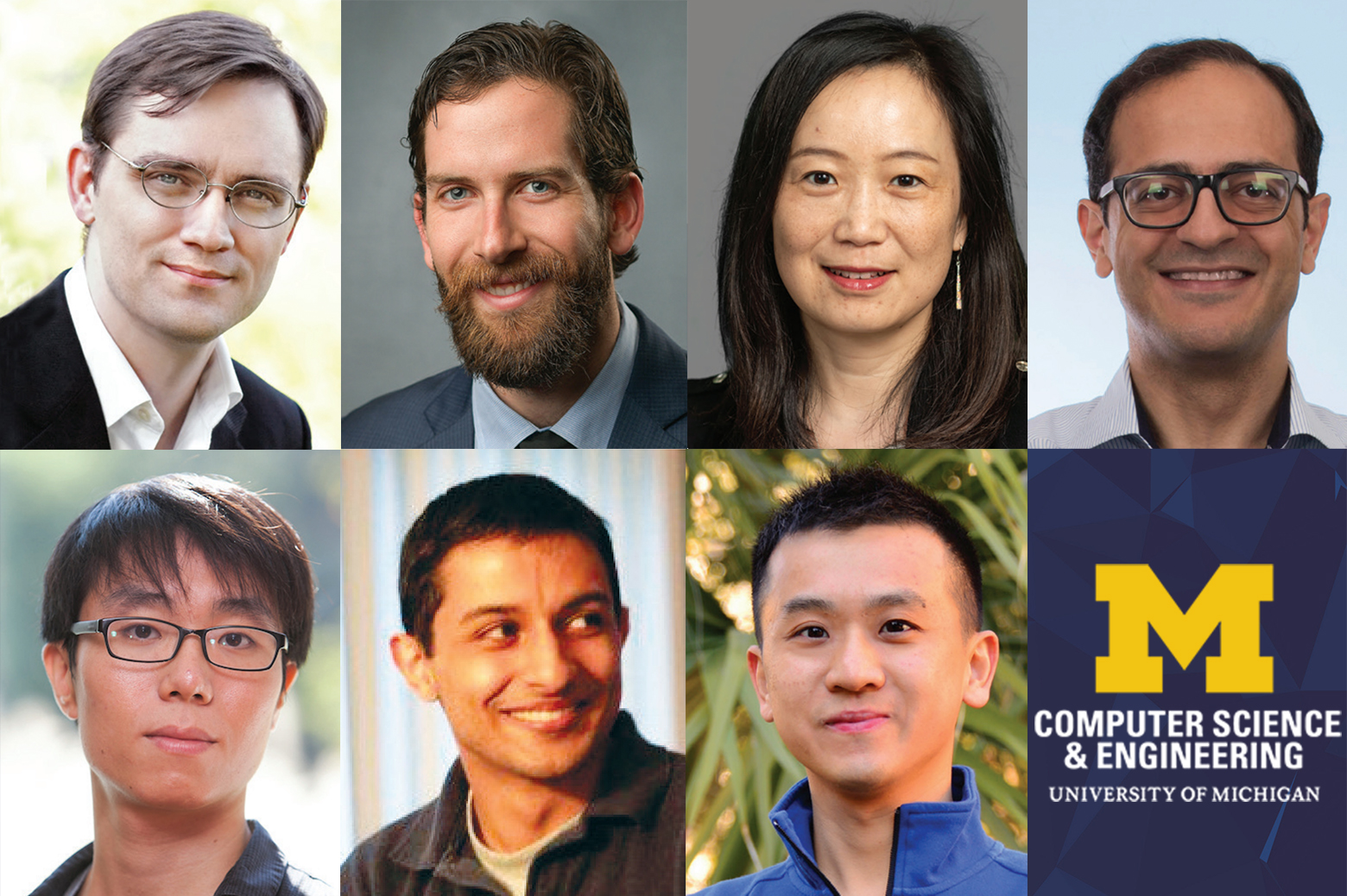7 new faculty in CSE
The new additions to the department offer a breadth of research and educational experience, with projects spanning robotic interaction and the future of programming languages.

 Enlarge
Enlarge
Michael Adams
Assistant Research Scientist
PhD, Computer Science, 2011 Indiana University
Michael’s research is centered on programming languages, with an emphasis on static analysis and cybersecurity, parsing, and generic programming and meta-programming. His goal is to develop next-generation languages and techniques that improve the process of programming, and to help programmers to more easily implement, reason about, improve the performance of, and secure their code.
Jonathan Beaumont
Lecturer III
PhD, Computer Science and Engineering, 2019 University of Michigan
Jon has served as an Instructional Aid in EECS 270, and as a primary instructor and a GSI in EECS 470. He was recognized by the EECS Department in 2014 and by the College of Engineering in 2015 for his excellent work in the latter. He has served on the CS Kickstart staff, a program designed to acclimate incoming first-year women to the discipline, and as a teaching consultant with CRLT-Engin.
Joyce Chai
Professor
PhD, Computer Science, 1998 Duke University
Joyce joins the department from Michigan State University, where she has been on the faculty since 2003. Her research is in natural language processing and human-machine conversation. Her recent work explores the intersection between language, vision, and robotics to improve communication with robots and other artificial agents. She has an excellent record in the classroom, teaching core AI as well as courses on natural language processing and language interaction. Prior to MSU, she was a research staff member at IBM T.J. Watson Research Center.
Mahdi Cheraghchi
Assistant Professor
PhD, Computer Science, 2010 Swiss Federal Institute of Technology (EPFL)
Mahdi joins EECS from the Imperial College London, where he has been on the faculty since 2015. He is broadly interested in all theoretical aspects of computer science, especially the role of information and coding theory in cryptography, complexity, algorithms, and high-dimensional geometry. Previously, he has held post-doctoral appointments at UC Berkeley, MIT, Carnegie Mellon, and UT Austin, and as a visiting engineer at Qualcomm. At EPFL, he received the Patrick Denantes Memorial Prize for outstanding doctoral thesis in the School of Computer and Communication Sciences.
Euiwoong Lee
Assistant Professor
PhD, Computer Science, 2017 Carnegie Mellon University
Euiwoong’s research interests include topics in optimization algorithms and complexity theory, such as approximation algorithms, hardness of approximation, sum-of-squares hierarchies, and parameterized algorithms. He is a recipient of the Edmund M. Clarke Doctoral Dissertation Award, an ICALP Best Student Paper Award, and the Simons Award for Graduate Students in Theoretical Computer Science. He is currently a post-doctoral researcher at the Computer Science Department of New York University and will join the department in September 2020.
Cyrus Omar
Assistant Professor
PhD, Computer Science, 2017 Carnegie Mellon University
Cyrus applies type-theoretic and cognitive principles to design nextgeneration user interfaces for programming languages. He currently leads the development of Hazel (hazel.org), a live functional programming environment that understands incomplete programs, i.e., programs with holes. He is ultimately interested in improving the programming experience for computational and data scientists, web application programmers, students and educators, and for people with limited mobility and other disabilities who cannot effectively use other programming tools. Cyrus was previously a postdoctoral researcher at the University of Chicago. He started his research career as a theoretical neurobiologist before deciding to focus on augmenting human cognition with better programming tools.
Xinyu Wang
Assistant Professor PhD, Computer Science, 2019 (exp.) University of Texas at Austin
Xinyu works at the intersection of programming languages, software engineering, and formal methods. He is interested in developing foundational program synthesis techniques that are applicable to automating real-world programming tasks. He is also interested in developing and applying program analysis techniques in the context of software security and software engineering. Xinyu is currently a PhD student at the University of Texas at Austin and will join the department in September 2020.
 MENU
MENU 
